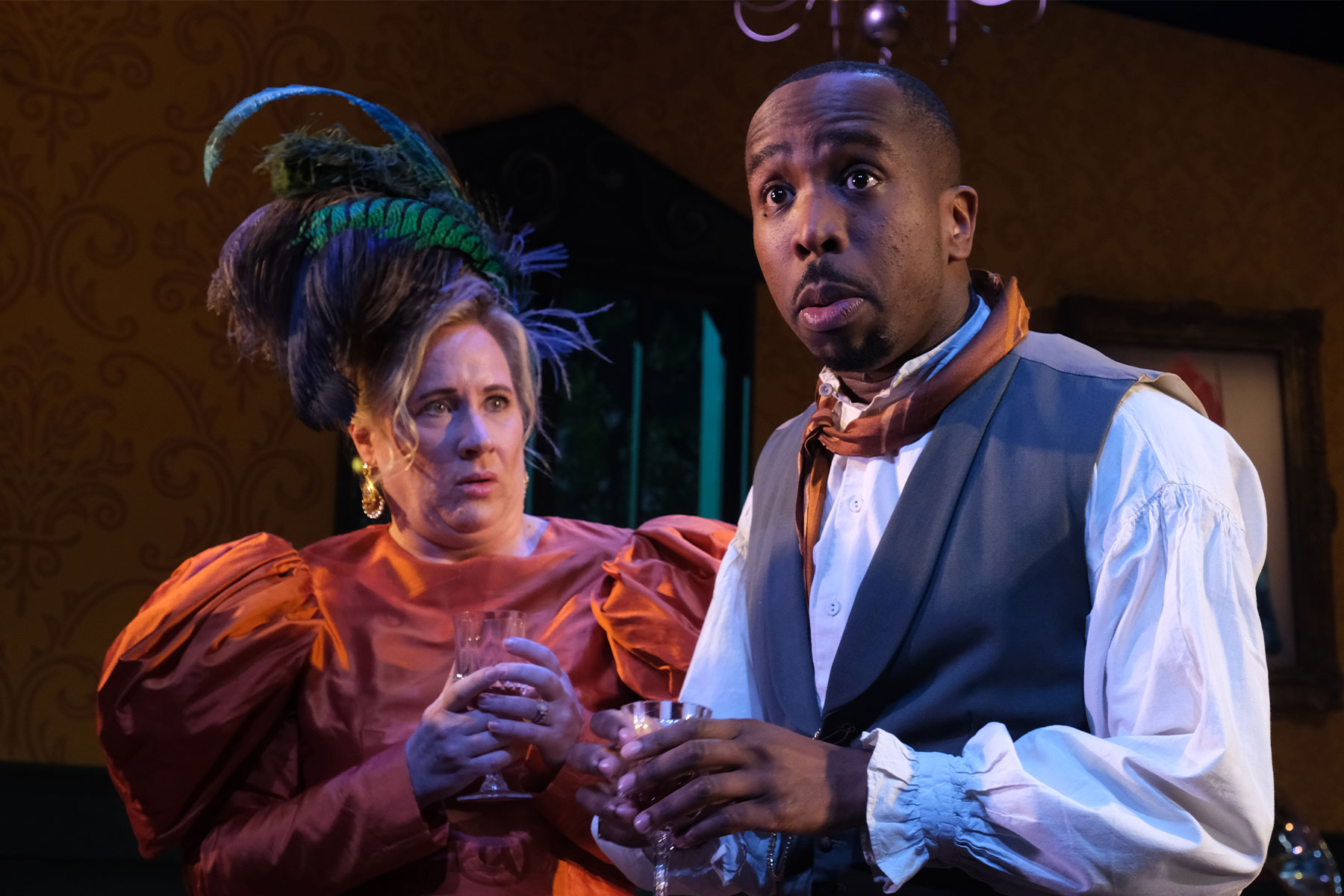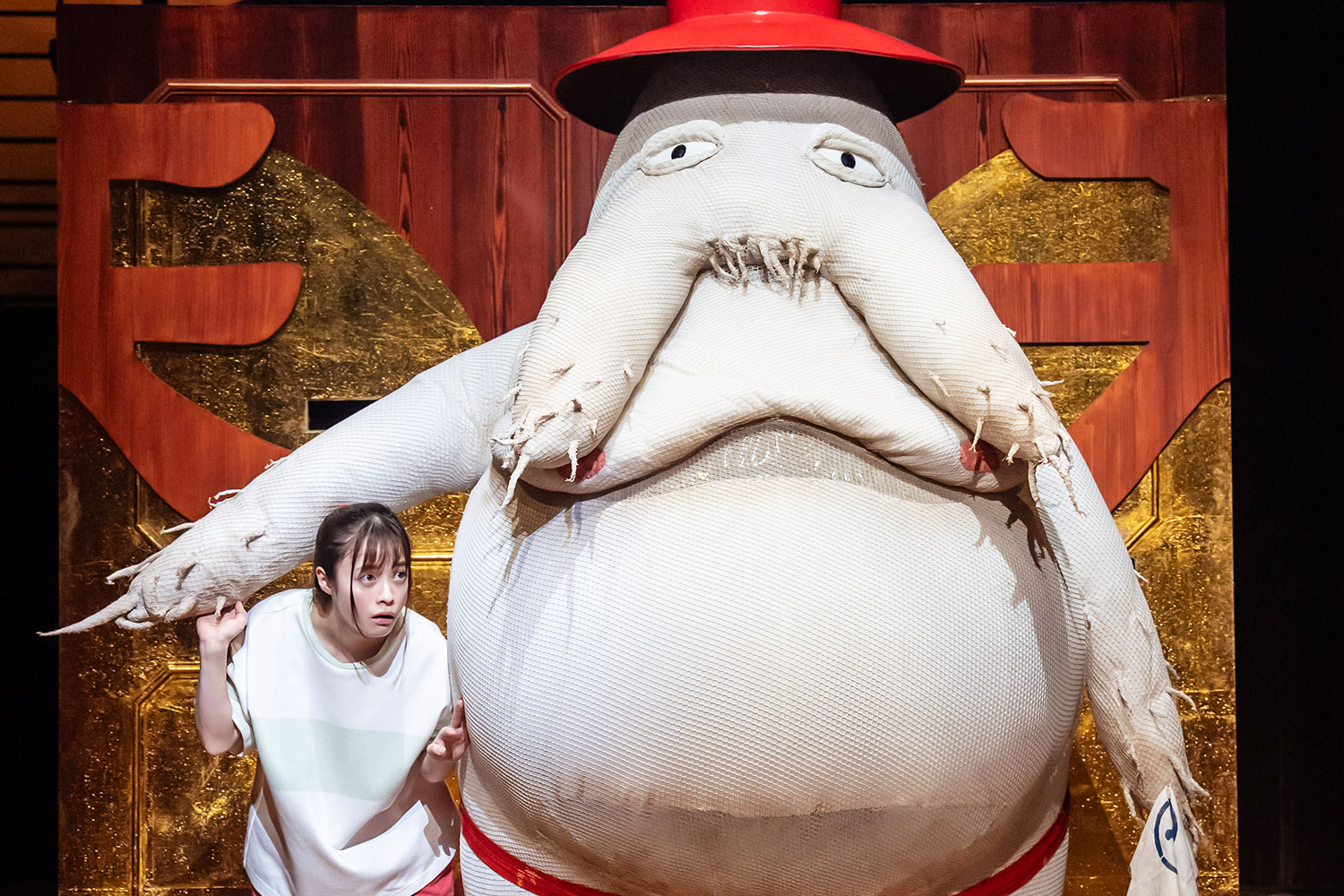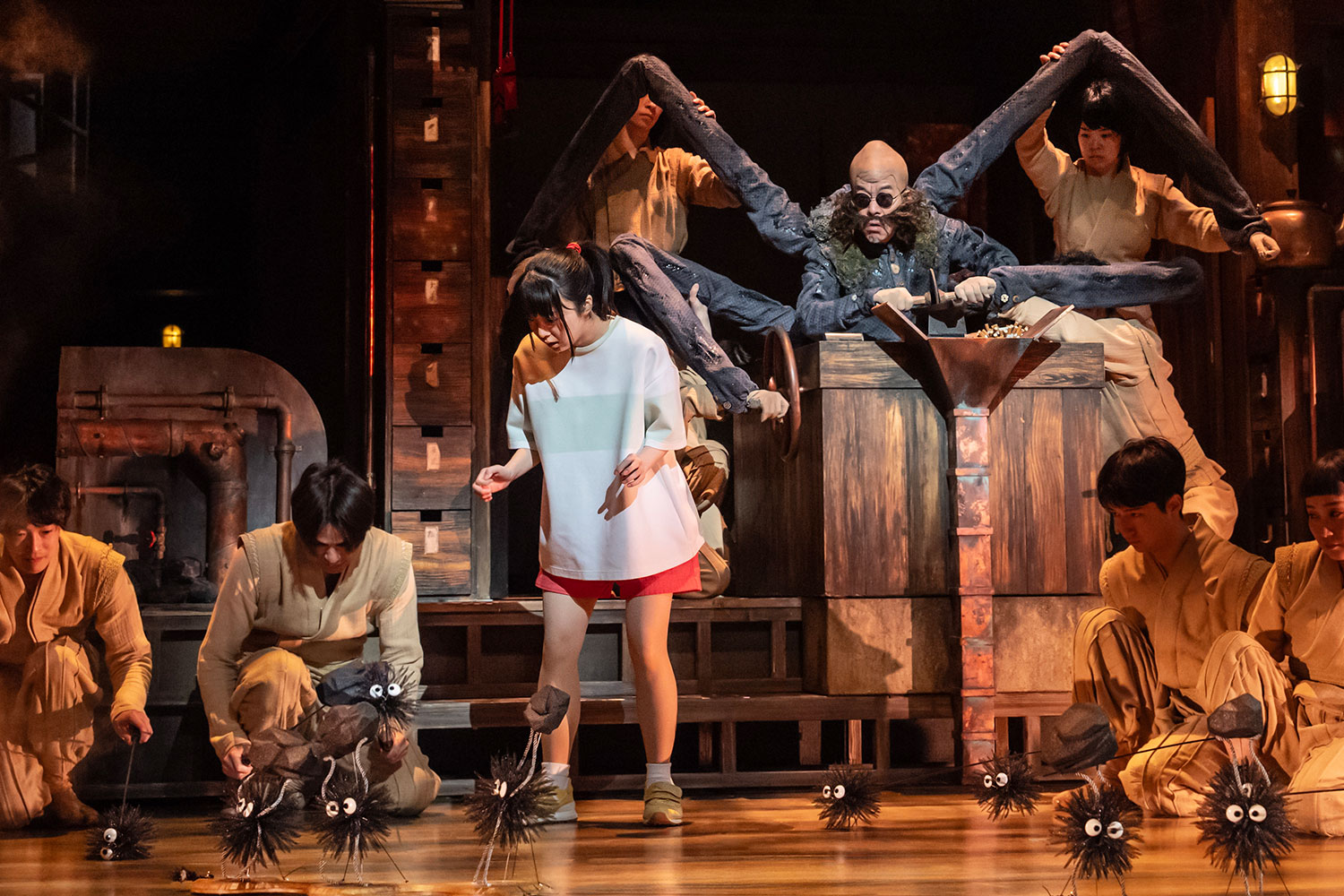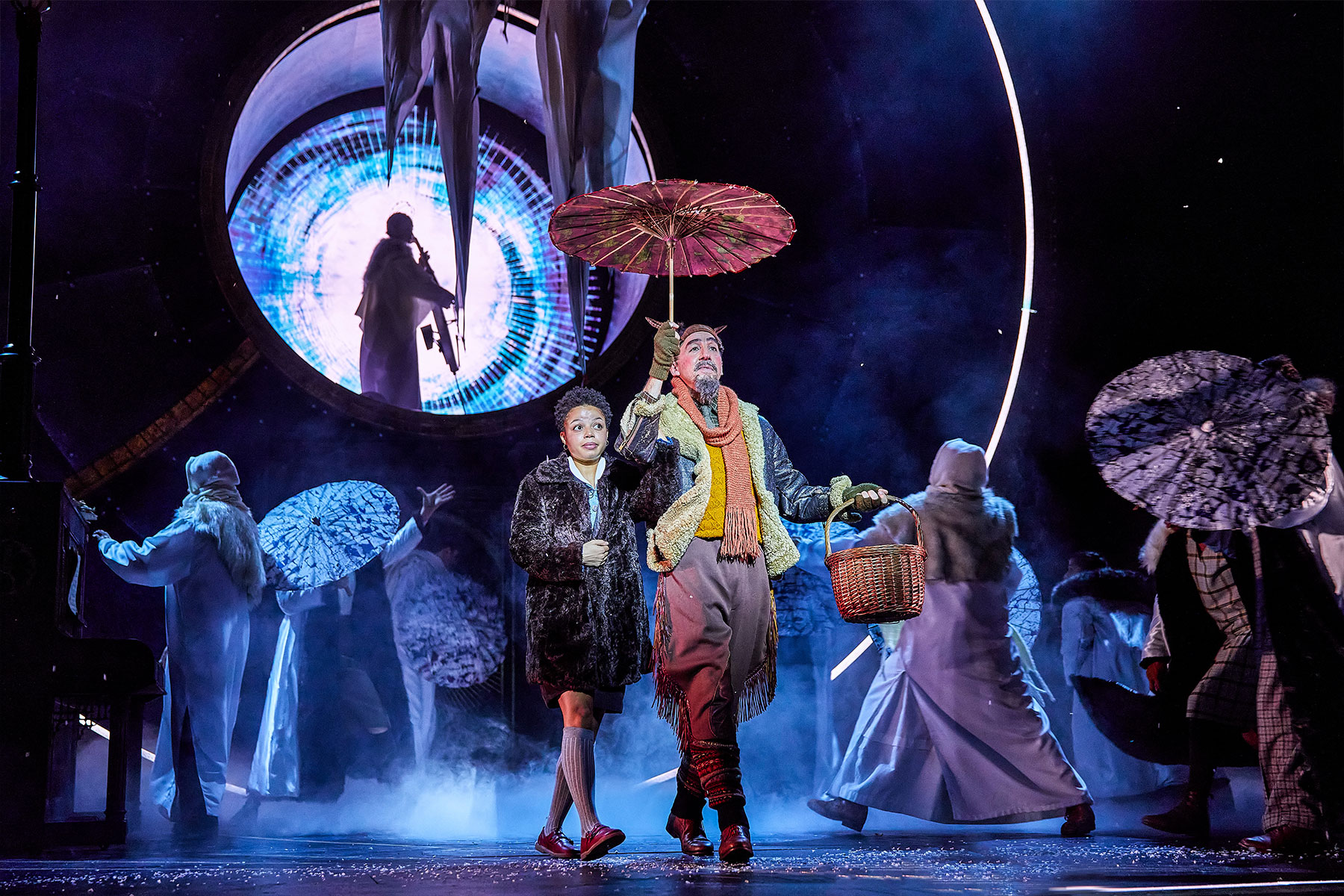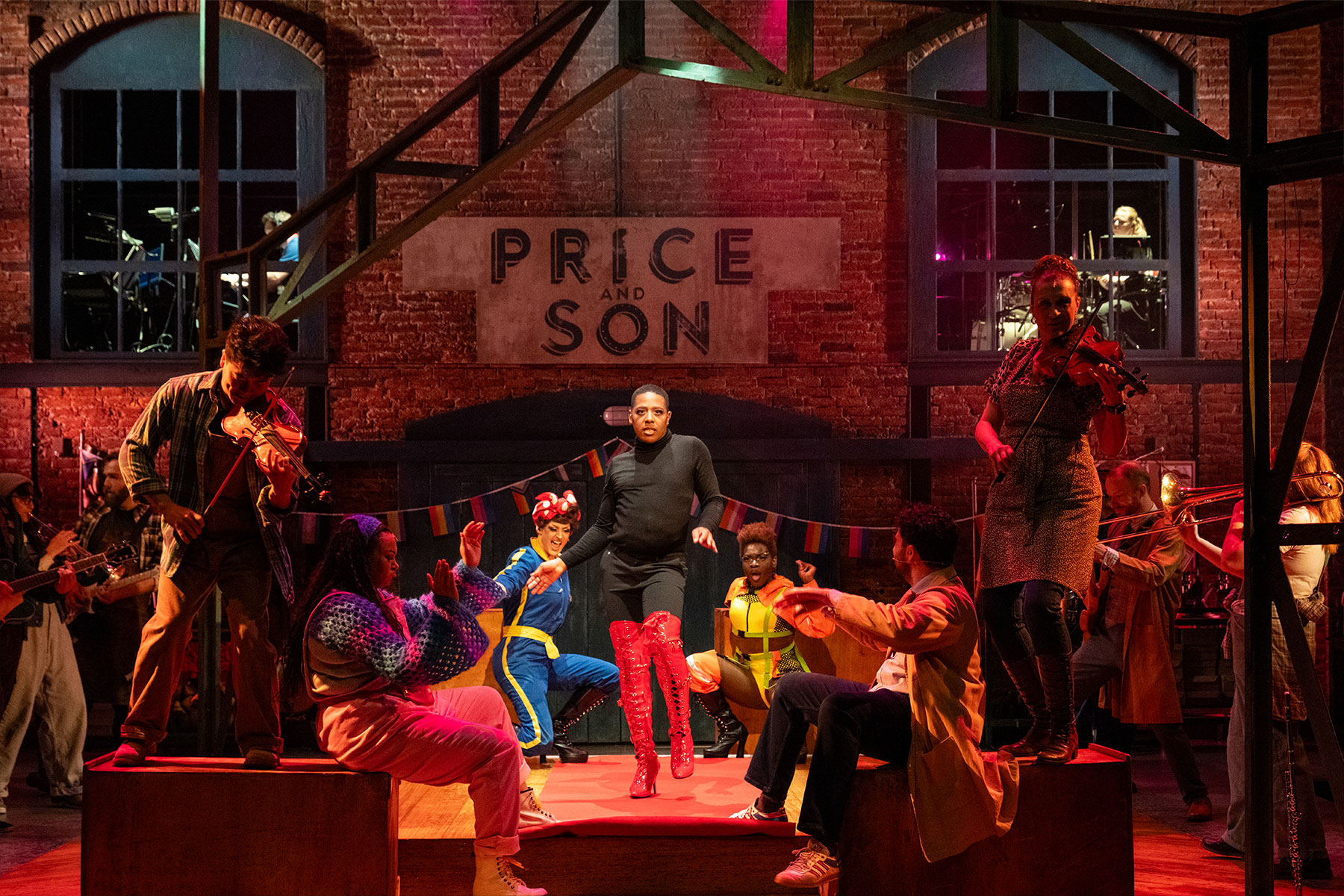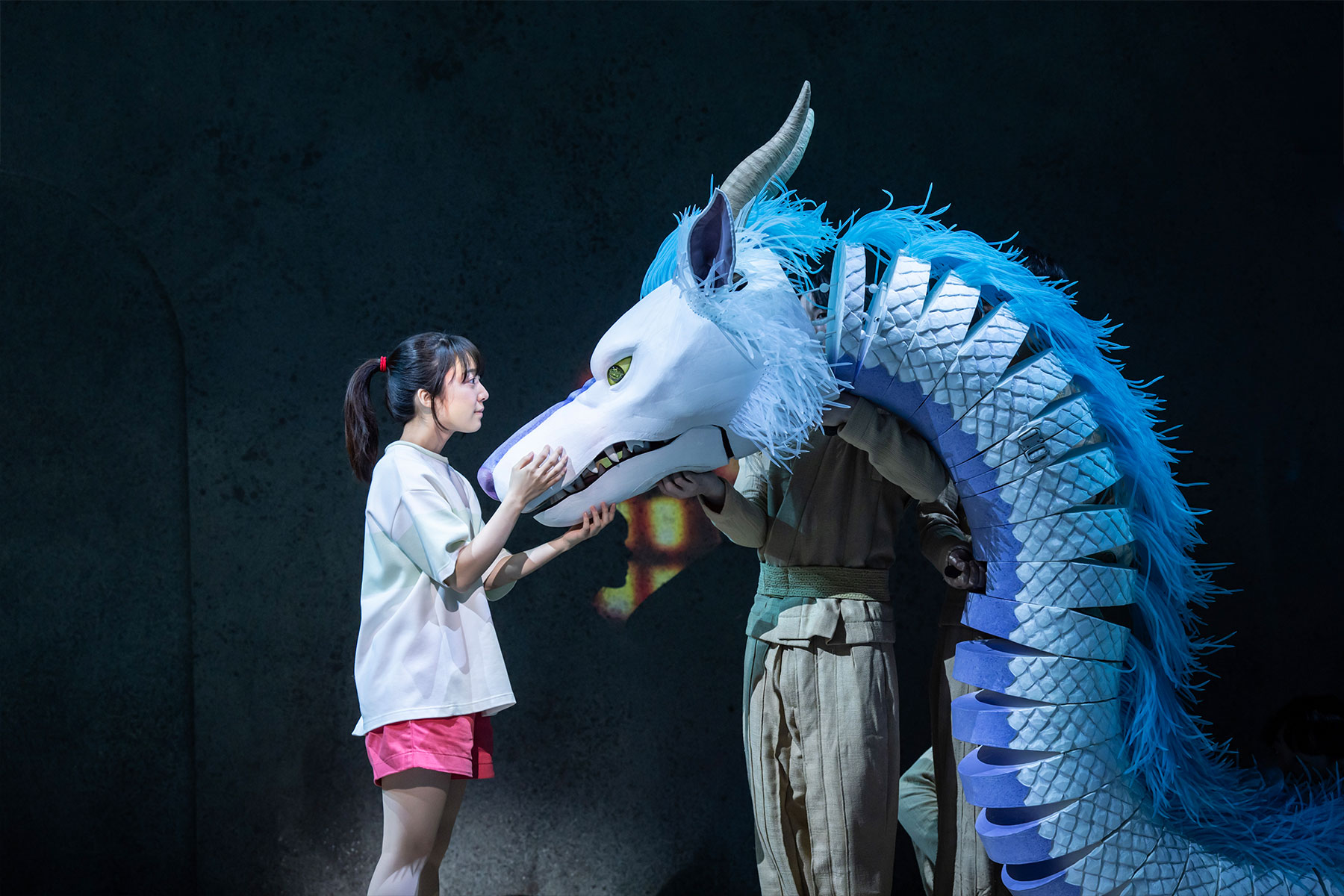Haunting Julia
Haunting Julia on National Tour
 Cards on the table time. This reviewer is a huge Alan Ayckbourn fan, constantly impressed by the knight of fifty-plus play’s innovations in staging and writng and his consistently brilliant direction. He does the human condition very well, does our Alan, digging beyond the suburban, gravel-pathed surface to provide some reasoning for the things we do for love.
Cards on the table time. This reviewer is a huge Alan Ayckbourn fan, constantly impressed by the knight of fifty-plus play’s innovations in staging and writng and his consistently brilliant direction. He does the human condition very well, does our Alan, digging beyond the suburban, gravel-pathed surface to provide some reasoning for the things we do for love.
Haunting Julia is no different, although it was originally intended to be a ghost story. It was also intended to be the first play at the Stephen Joseph’s end stage McCarthy Auditorium, although building delays put that idea to rest. Now heading back to its spiritual (pun intended!) home, Haunting Julia is the tale of Julia Lukin, a musical child prodigy who comitted suicide in ‘suspicious circumstances’ 15 years ago. Her father Joe (played by the ever sterling John Branwell) has turned Julia’s previous student residence into a museum-come-shrine for the daughter he doted on. Joe invites his daughter’s former boyfriend Andy (Bill Champion) and psychic Ken (Richard Derrington) round to unearth the truth about the death.
At which point Ayckbourn seemingly got distracted, left behind his original plan to scare the audience out of their seats and opted to espouse on parent/child relationships. There are a few frights along the way, the odd stomach in the mouth moment, but for the most part, this is not a ghost story at all. Neither is it a comedy, although there are some opportunities to laugh as Julia’s beyond-the-grave ivory tinkering can be heard. ‘She’s playing a piano that’s not there?’ says Andy. ‘Yes’, replies Ken, ‘but that’s alright, because she’s not there either.’
So there we are, back at the human condition. It’s not clear what Ayckbourn’s actually trying to say here. Joe and his wife pulled out all the stops to nurture their daughter’s creative genius. They bought her a Steinway; they tried to understand what it was like to live with a head full of music; they obsessed with her success; they ‘forced’ her not to squander her talents. And when she died, they still couldn’t let her go. They did, in short, what any parent with a talented child would do. Now is that wrong? According to Ayckbourn, the answer seems to be yes, this an inevitable part of loving your offspring. Oh, maybe the point is clear then.
Dave Windass
On tour until 8 May
At the Stephen Joseph Theatre, Scarborough 13 May-5 June



